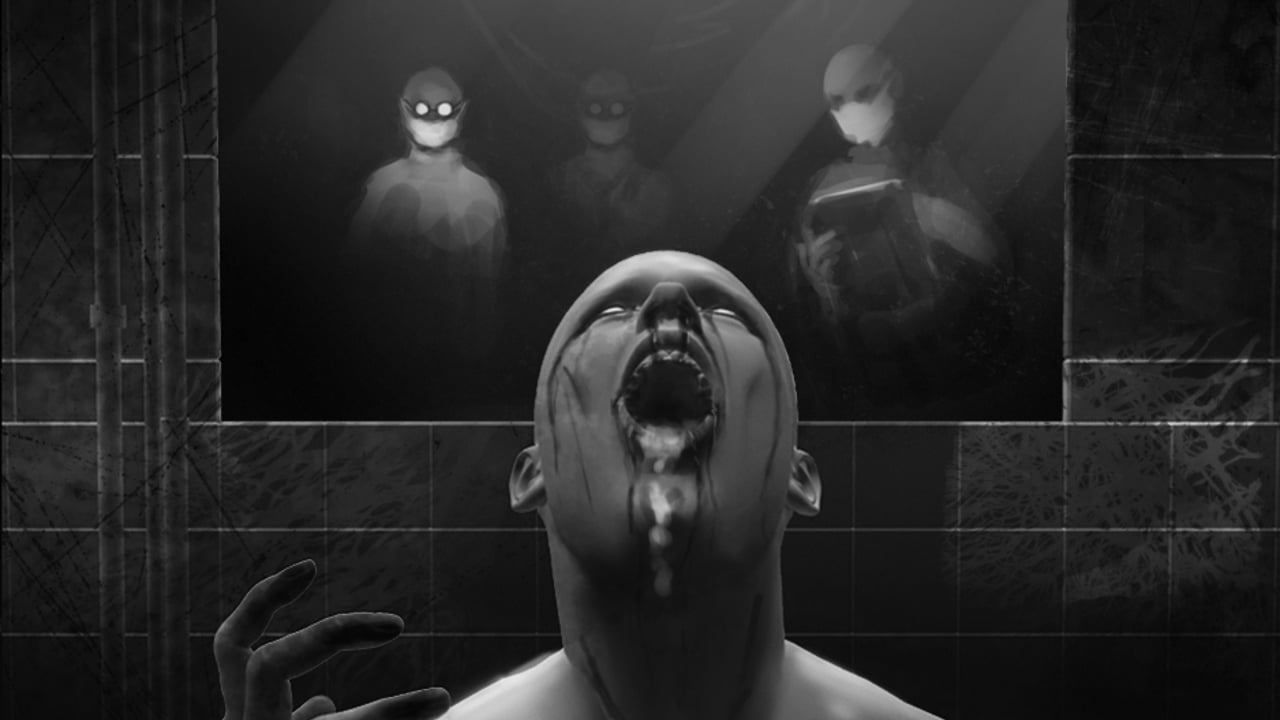
It's the late 1940's and Soviet researchers have created a new stimulant that they believe can keep a person awake for multiple days, which is a handy thing to have when you're fighting a war!
During the Second World War, the Nazis had their own version of such a stimulant, a methamphetamine called Pervitin. And the Americans and the British would give their troops the amphetamine Benzedrine.
The Soviets are trying to develop their own version of such a drug, but are hoping to create a stimulant without the usual side effects. They've now created something special, and are ready to begin human trials.
Luckily for the Soviets, it's not hard to find test subjects as they have plenty of prisoners of war locked up in their prisons. And with them ethical and moral concerns aren't really an issue!
They set up a test chamber where five subjects will stay. It's a sealed environment into which the researchers can release the stimulant in a gas from, and control the oxygen levels in the room.
The subjects have been given dried food, a sink, a toilet, and each a bed. The researchers listen to the subjects through a microphone, and there are cameras through which they can monitor the experiment. There's also a small window in the front door that can be used to look at the subjects.
The experiment begins, and for the first three days everything goes smoothly. The men are getting along well and are feeling good, even though they've been awake for days by now! The gas seems to be doing its job, and the researchers are pleased with the results so far.
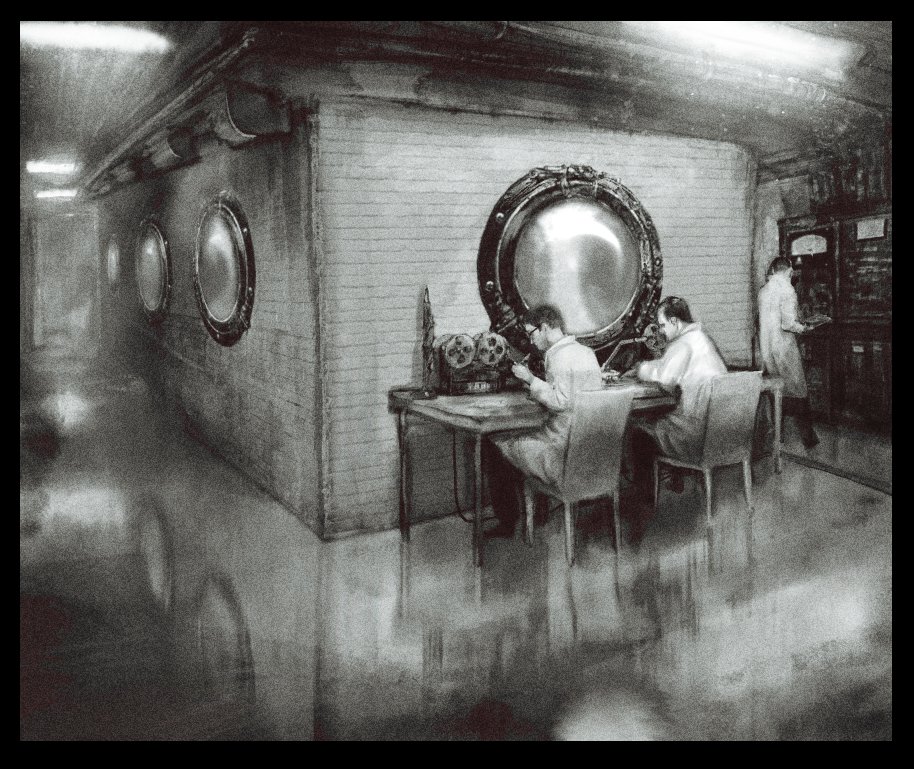
The subjects have agreed to try and stay awake for 30 days, and have been falsely informed that if they can make the 30 days, they will get their freedom back. To the five men, this doesn't seem like such a bad deal, and it's far better than spending the rest of their lives in a Gulag.
But things take a darker turn after the 4th day, when the subjects begin discussing war, and the horrors they have experienced. They talk about traumas, nightmares, and other terrible things they have experienced.
By day 5 things are getting worse, the men are now showing signs of psychosis, and are talking to themselves and things that are not there. They grow paranoid of each other, and begin whispering things about the other subjects into the microphones.
The researchers are of course well aware of the effects of sleep deprivation, but weren't sure if the symptoms they were seeing was because of the gas or the lack of sleep. After five days the mind begins to turn on a person, and hallucinations can seem real and scary.
By day nine they have their answer, and signs are pointing towards the gas! One subject suddenly started screaming while running up and down the room, and this went on for hours! Until he most likely damaged his vocal cords, because eventually he could do nothing more than squeal.
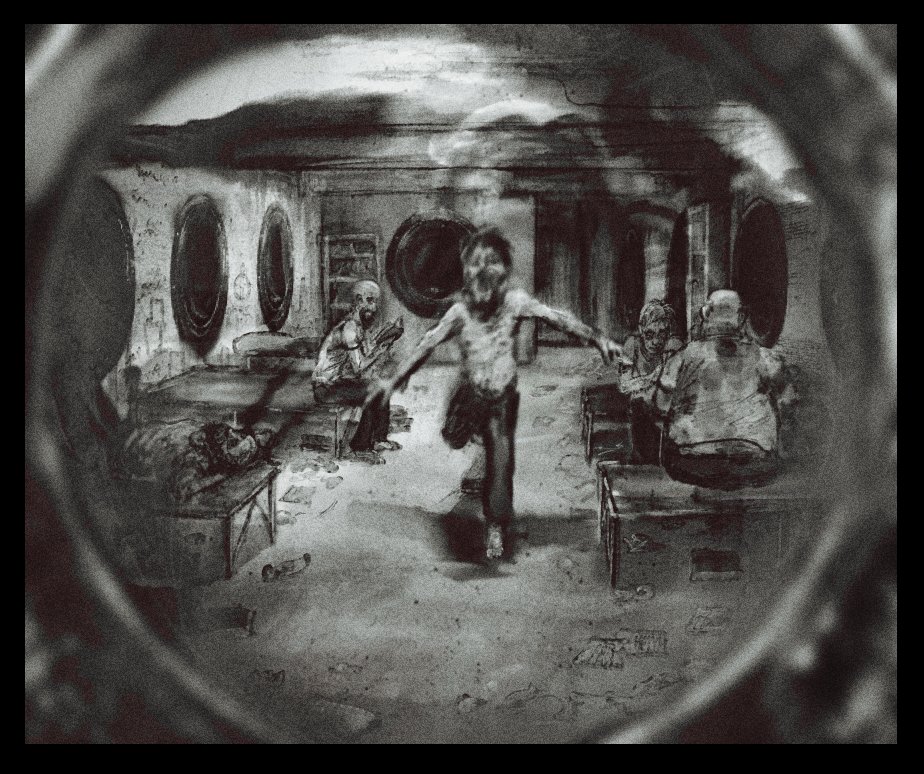
A few more days pass, but now there was just an eerie silence in the room, and the men could not be seen from the cameras. The scientists knew they were alive, since the oxygen levels indicated that there were five people in the room, but where were they? The small window in the test chamber's door had been covered up with feces and book pages, so no visual inspection could be made either!
The researchers didn't want to interrupt the study, but they felt they had no choice, and so announced through the intercom: "We are opening the chamber to test the microphones. Step away from the door and lie flat on the floor, or you will be shot!"
But then only one voice responded: "We no longer want to be freed".
What?! Had they gotten too addicted to the gas, the scientists wondered?
The researchers decided to open the test chamber anyway to make a personal inspection. They opened the vents and let fresh air displace the residual stimulant in the air. Suddenly all of the subjects began screaming and begged the scientists for more of the gas!
The scientists assumed that the test subjects had developed a serious addiction to the gas, but when they finally opened the door on day 15, they found one of the men dead!
Inside it was complete chaos, what the scientists saw was like a scene from a horror movie. In front of them was a body that had been torn apart and disemboweled. Even the survivors had chunks of their flesh ripped from their arms and legs. Their fingertips are showing exposed bone, and the skin has been scratched off their faces. They had torn the muscles right from their own chests, which now showed the horrific sight of their internal organs! Some of the organs had been arranged in what looked like an art piece, and to make things even worse, the men had started cannibalizing their own bodies, which they did happily!
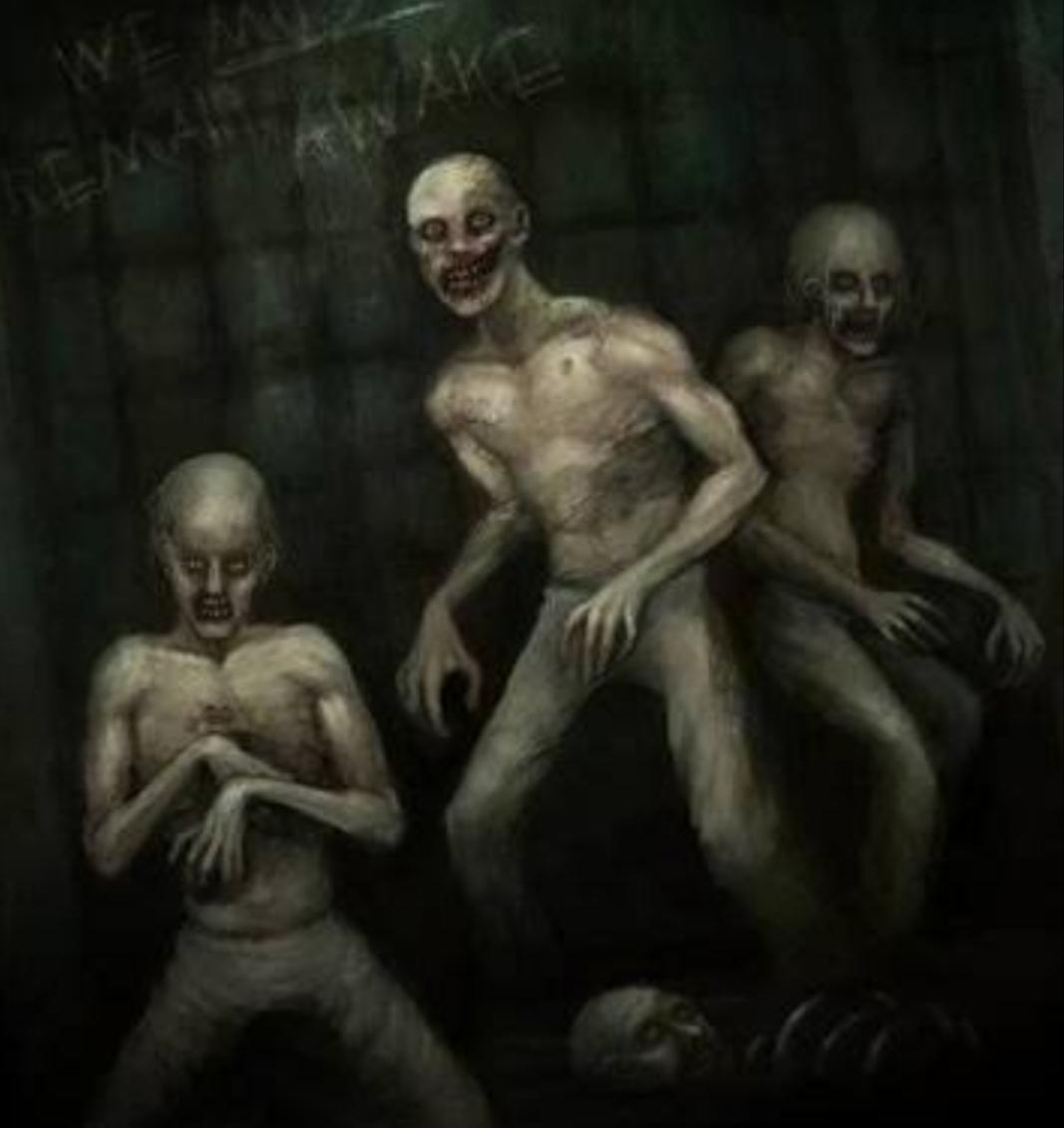
On closer inspection the researchers noticed that these wounds were most likely self inflicted, and it seemed that each man had mutilated himself. The researchers called for back up, not daring to go near any the men. They closed the door while the men were still screaming and pleading for the gas to come back.
When soldiers arrived to help remove the subjects, things didn't go exactly smoothly. One of the subjects ripped out a soldier's throat, while another tried to bite off the fingers of another one. In the end one of the soldiers died in the struggle, with some even committing suicide later, because of what they witnessed!
Once the subjects were finally restrained, the doctors injected them with enough morphine to sedate an elephant, but the men still resisted like wild animals. They had somehow developed a resistance to medication, and showed extreme strength and resilience. One subject eventually bled out, and one of the doctors suffered some broken bones. The three remaining subjects are eventually sedated and strapped to hospital beds and moved to a secure medical facility.
The researchers asked themselves, "how is this possible? How did we get it so wrong?" They hated to admit it, but maybe the Nazis, the British, and the Americans were right by giving their soldiers just top of the line standard drugs.
Surgeons attempted to put back some of the missing organs in one of the men, but the subject almost broke through his restraints mid-surgery. They attempted to sedate him with an anesthetic, but after he passed out the man's heart stopped, and he died.
When they tried to treat the next two men, they decided that three deaths were enough and didn't use any anesthetic this time. They repaired their organs, and patched them up with multiple skin grafts. The head surgeon said he had never seen patients in such a bad condition, and that the men shouldn't be alive after what they had gone though.
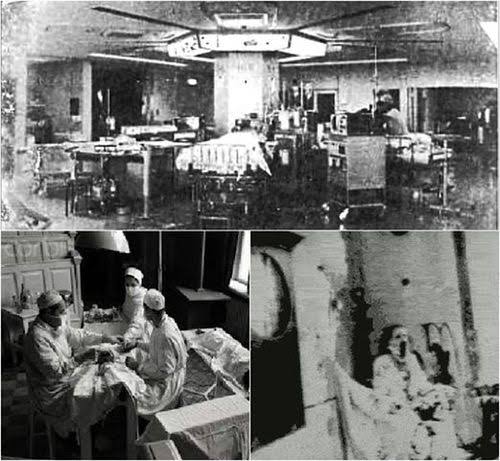
But now the question was, what do they do next?
A military officer that was there to oversee the experiment decided that they might as well put them back in the test chamber, like they wanted. The researchers objected to this, saying that the experiment had already gone far enough, but the officer who outranked them ordered that experiment would continue. Noting that the problems all started when the gas was turned off and the subjects went into withdrawal. They had no other use for the test subjects anyway.
The two remaining subjects were now being prepared to be returned to the test chamber, but were first given a complete physical to assess their current state of mind and body. The subjects were given an EEG, to monitor their brain activity, which showed that both subjects experienced brief moments of brain death!
Before they could return the subjects to the test chamber, one of them fell asleep, and died on the spot. The last subject again pleaded to be put back on the gas, and the military officer ordered the scientists to immediately return him back to test chamber.
But once the researchers were back in the chamber with the last subject, the officer told the the four researchers that they would also be staying, to make up for the lost test subjects.
One of the scientists drew his pistol and shot the officer in the head! "I won't be locked up in here, not with these things!", he shouted out loud.
After the events of the last couple of days, the scientist had gone to the armory and had taken a weapon, so he could protect himself, in case anything else should happen during the experiment.
The other researchers fled the room, which left the scientist all alone with the last subject. "What are you?", he desperately asked, while pointing the gun at the subject.
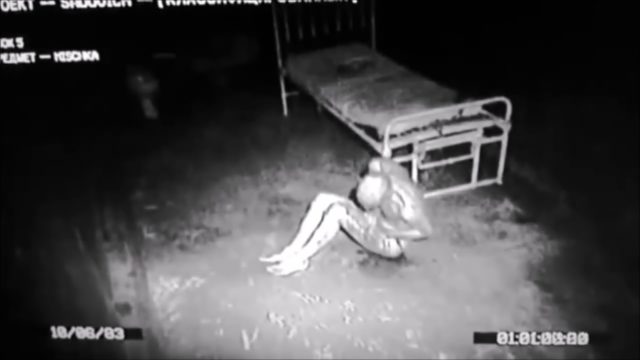
"Have you forgotten so easily?", asked the subject. "We are you! We are the dark side of humanity, the evil that lurks deep inside all of us. The part of us that is begging to be released from the deepest recesses of our animal minds. We are what you sedate and hide away when you sleep, the part that you don't dare to go to!"
After a brief pause, the researcher raised his weapon one more time, and shot the last subject in the chest. With his dying breath the subject forced out his last words: "So...nearly...free..."
That's where the story ends, but that still leaves us with the question, is the story actually true?
When the story first came out most people believed that the Russian sleep experiment was a true story, or that it was at least based on facts. From here the story spread all over the internet, and became famous as a creepypasta.
Back in the day, the Soviet Union was definitely involved in human experiments, the most infamous of these experiments being those carried out by "The Cell", which tested poisons on human test subjects. So it's not that far of a stretch to think that they might have experimented with stimulants as well, especially when many other countries were doing it too.
But the violent events, such as cannibalism and the ripping out of organs, does seem a bit to extreme to be real. Even if the drugs gave them some superhuman strength, it's impossible for someone to continue living after inflicting that much damage to their body. They would have most likely died from blood loss or shock.
There's also no evidence at all of the experiment ever having taken place, and no gas has ever been discovered that can keep a person awake for 15 days. The soldiers that were given stimulants during the Second World War could only stay awake for a maximum of 24 to 36 hours, and they suffered strong side effects after taking the drugs.
The Pentagon has also done studies on this, and even if people are forced to stay awake for more than 48 hours, they will become very slow and pretty much useless as soldiers. They start to make tons of mistakes, which is not exactly ideal in the middle of a war zone. The Nazis definitely benefited from dosing their troops with pervitin, but the drug had to be taken with precautions, and it seems unlikely the Soviets could improve much on this.

So where did the story originally come from then?
Well, it was first published on a website that is known for its scary and often fictional stories. Of course it could still be classified and kept a secret by the Russian government, but that raises the question of how the original author could know about it then?
For now it seems that the story is entirely fictional.
Thanks for reading and I hope you enjoyed this story!
Congratulations @zirbo! You have completed the following achievement on the Hive blockchain and have been rewarded with new badge(s) :
You can view your badges on your board and compare yourself to others in the Ranking
If you no longer want to receive notifications, reply to this comment with the word
STOPCheck out the last post from @hivebuzz: